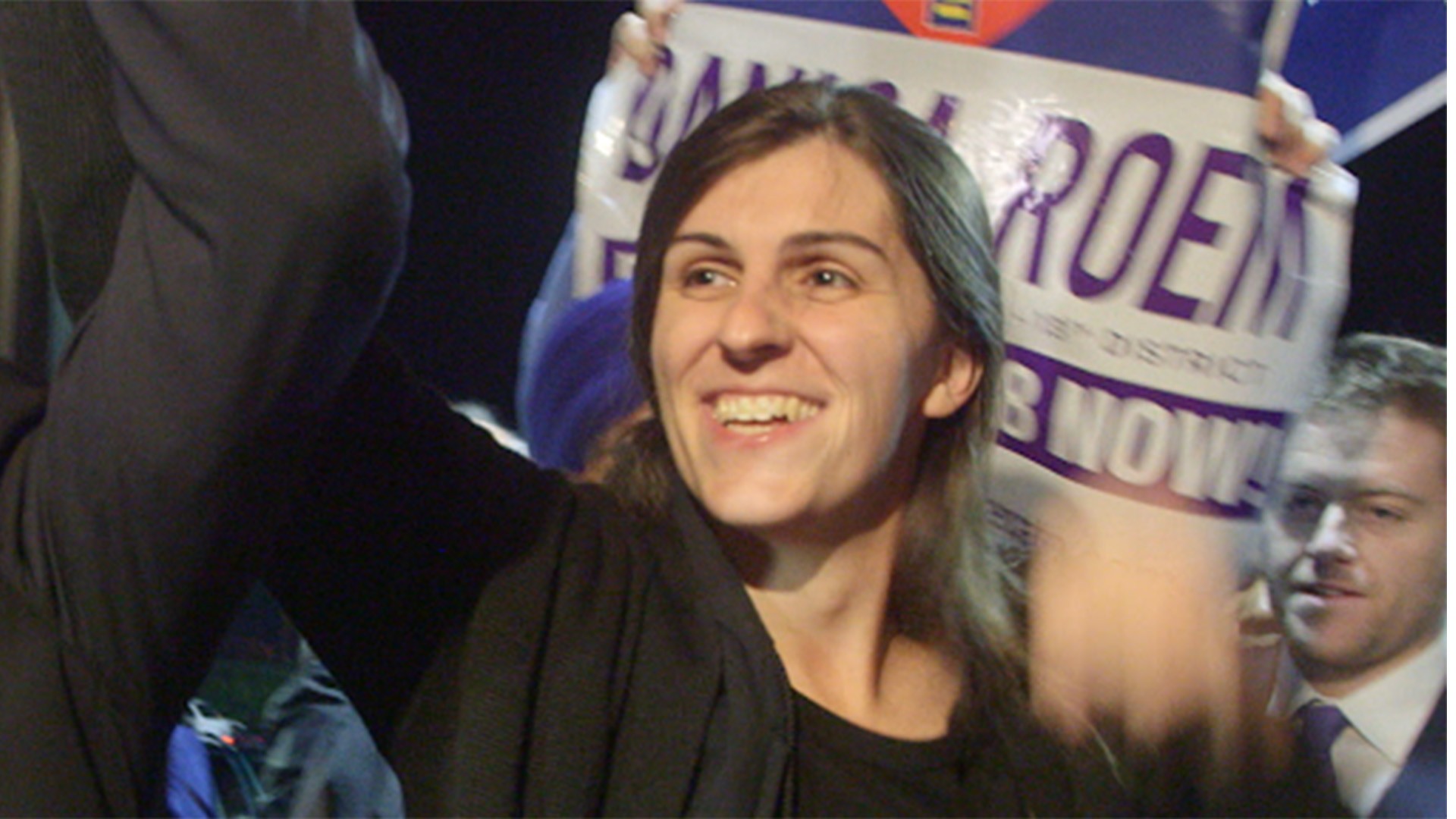Photos courtesy Cara Buckley and Melena Ryzik.
You Know Who Rules? is Broadly's December interview series highlighting women and non-binary people who accomplished incredible things during the dumpster fire of a year that was 2017.Cara Buckley is a culture reporter for The New York Times, covering the Hollywood film awards season and the news and culture that surrounds it. Melena Ryzik is a roving culture reporter for the Times, covering film, television, theater, music, and visual arts.In November, Buckley an Ryzik, along with fellow Times reporter Jodi Kantor, were the first to publish substantiated reports of comedian Louis C.K.’s alleged sexual misconduct, with five women stating on the record that the comedian had asked them to watch or listen to him masturbate. Since then, C.K. admitted in a public letter that the allegations against him were true, film distribution company the Orchard dropped his latest movie, and FX, HBO and Netflix all cut ties with the comedian.Broadly spoke to Buckley and Ryzik about the reporting process behind their Louis C.K. investigation, the value of real journalism, and the importance of telling the stories of women and under-represented people.This interview has been edited and condensed for clarity.BROADLY: Looking back at 2017, what work are you most proud of?Cara Buckley: Working on the Louis C.K. story was certainly a high point. It was an intense several weeks that involved a ton of gum-shoe reporting—knocking on doors, making cold calls by the dozens, slipping notes under security gates in Beverly Hills, dropping in on comedy clubs. Most rewarding, though, was working with Melena and Jodi Kantor on the piece. It was deeply collaborative, and I learned a ton, which is gratifying after 17 years in the business. Other pieces I greatly enjoyed doing included profiles of Charlize Theron and Angelina Jolie, and an article about documentary films that delved into the implications of systemic racism, while also challenging mainstream narratives about race.Melena Ryzik: I was out on maternity leave for part of the year and when I returned, I almost immediately began working on an investigation of Fyre Fest, with my colleagues Joe Coscarelli and Ben Sisario. What had been an Internet laughing stock was also a financial fiasco that dramatically short-changed a lot of hard-working people in the Bahamas and elsewhere. I was proud to be able to shine a light on how this supposed Insta-paradise millennial bacchanal impacted them in the real world.The Louis C.K. investigation is one of a series of New York Times investigations into sexual misconduct, including of course the Harvey Weinstein coverage, Bill O'Reilly, Silicon Valley and more. I'm immensely proud that the New York Times as an institution devoted the time and resources to this reporting all year long. And I’ll echo Cara to say that working in tandem with colleagues always makes the tough stories much more surmountable.A real personal highlight was interviewing Jane Goodall, who at 83 is the very definition of inspiring badass. She gave me a chimp hug! (Which, it turns out, is not all that different from a human hug!)

You both, along with with Jodi Kantor, broke the Louis C.K. story for the New York Times. What was the process of reporting that story like and how did it feel to finally have it published?Buckley: Three of the women approached us with their stories, and as part of our due diligence we needed corroboration of their accounts, along with the accounts of the two other women who appeared in our piece. This involved gathering written proof, via their emails and Facebook messages with Louis C.K., and also contacting people that the women had reached out to after the incidents in question had occurred, and making sure their memories of what they’d been told matched up. The hours preceding publication were particularly harrowing. We had presented Louis C.K. and his representatives with the women’s corroborated accounts, and weren’t sure what if any responses we would get.Ryzik: It was definitely a process and, as Cara said, often really dogged work. They’re not easy stories to do; these experiences can be painful for people to relive, and the fact that these women trusted us to share their stories is something we take very seriously. It’s a responsibility and a privilege to have that trust. I hope that publishing the story helped them and others in their position.For many victims and advocates, 2017 seems to have been a watershed year (in terms of sexual violence awareness and discourse). How does it feel to be leading that change through your reporting?Buckley: We may have been the messengers, but the women who were brave enough to publicly step forward with their accounts of the misconduct are the ones who deserve the plaudits.Ryzik: Exactly, the women are the ones leading the charge. But across the board, it’s been amazing and eye-opening to see the effect that this reporting has had. We've received letters from men who had no idea about the scope of this problem. It's inspiring to see people stand in solidarity and, I think, invaluable for victimized women and men to feel that their voices are heard, and that they're not alone.And I hope it reminds people about the value of real reporting: Holding powerful people accountable is a main mission of journalism.
Advertisement
Advertisement

You both, along with with Jodi Kantor, broke the Louis C.K. story for the New York Times. What was the process of reporting that story like and how did it feel to finally have it published?Buckley: Three of the women approached us with their stories, and as part of our due diligence we needed corroboration of their accounts, along with the accounts of the two other women who appeared in our piece. This involved gathering written proof, via their emails and Facebook messages with Louis C.K., and also contacting people that the women had reached out to after the incidents in question had occurred, and making sure their memories of what they’d been told matched up. The hours preceding publication were particularly harrowing. We had presented Louis C.K. and his representatives with the women’s corroborated accounts, and weren’t sure what if any responses we would get.
Advertisement
Looking forward to 2018, what are you excited about?Buckley: I report on Oscars race as the Carpetbagger, and this season is heavily overshadowed by the awful revelations about Harvey Weinstein, who for decades had been a big player in the awards campaigns. Everyone who covers the awards is wondering how the sexual misconduct and harassment scandals will be handled. I’m also curious how we will view this moment, which, amazingly, is only two months old, from a distance. It’s groundbreaking, and almost disorienting, for women’s stories to be believed, and for men in power to be held accountable.Ryzik: I’m excited see what kind of change this new movement to value the stories of women and under-represented people can bring. And I’m hopeful that we’ll see some new, positive stories because of it.
